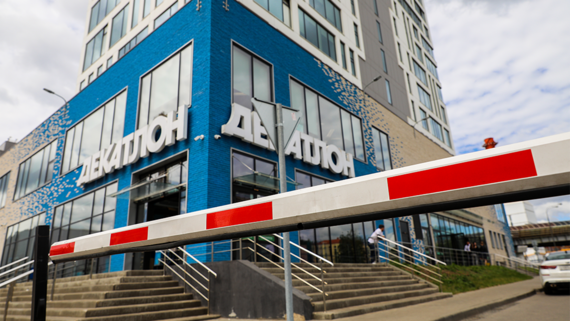Decathlon stores in Russia bought by Mango, Chocolate Girl and Burger King franchisees
[ad_1]

35 stores and a warehouse of the French company Decathlon in Russia were bought by the Russian company ARM. According to Kontur.Fokus, its CEO and owner of a 1% stake is Vyacheslav Mareev.
Mareev is also the owner or manager of a number of legal entities that are engaged in the restaurant business. For example, this is the franchising of Chocolate Girl, Burger King, Chaikhona No. 1, and the Cheese Factory restaurant. Among his business partners are restaurateur Arkady Novikov and the main owner of the Shokoladnitsa Group of Companies, the Coffee House and Wabi Sabi chains Alexander Kolobov.
The main shares in LLC “ARM” belong to MCOOO “Tribalon ltd.” – a Cypriot company that redomiciliated to the Kaliningrad region two years ago. Its owners are not disclosed, but the company is present as a co-owner in many legal entities where Mareev has shares.
Decathlon is the world’s largest manufacturer and retailer of sporting goods. In Russia, the company suspended the work of 57 stores in March last year due to “the impossibility of continuing deliveries to the country due to sanctions.” In 2022, the revenue of the main legal entity of the retailer, Oktoblu LLC, amounted to 15.3 billion rubles. (against RUB 28.5 billion in 2021), and a net loss of RUB 7.6 billion. against a net profit of 1.4 billion rubles. a year earlier.
Decathlon locations will open in October-November and have already started recruiting, says a source close to the retailer. According to him, it is not known whether the chain will retain the name, but the profile – sporting goods – will remain the same. In addition, two joint stores with Kant will open in Altufiev and Zelenograd, which were closed last summer, says the source of Vedomosti.
Marina Malakhatko, director of the Core.XP retail department, estimates the amount of the transaction, depending on which assets were included in it, at 3-5 billion rubles. Previously, Mikhail Burmistrov, General Director of Infoline-analytics, estimated only the rights to long-term lease of premises in the current state at 3-4 billion rubles. But real estate itself without a franchise under the Decathlon brand and without the supply of at least part of the goods is unlikely to be of interest to investors, said one of the Russian partners of the French network.
In place of the Decathlon facilities, it makes sense to continue the development of a sporting goods department store, Malakhatko believes. According to her, it is unlikely that the new owner will change the strategy, but he may have to resort to the “sell and lease back” scheme (sale-lease back) with at least part of the real estate in order to get liquidity, Malakhatko notes.
The expert estimates the minimum investment in the resuscitation of facilities at 700 million rubles. in the first year, if the network still has goods in its warehouses. If not, then the new owner will have to place orders with factories and pay suppliers of sports equipment, Malakhatko recalls.
If we talk about the opening of all stores, then this will require about 1 billion rubles, Burmistrov believes. This includes minimal rebranding and reshuffles within stores. According to the expert, the transition to a multi-brand department store will be the most effective. But, most likely, at the first stage it will be difficult to occupy all the areas, and therefore it is possible to attract external tenants, he notes.
As for the cost of the transaction, taking into account the discount required by law, we can talk about 5-6 billion rubles, says Burmistrov.
[ad_2]
Source link





